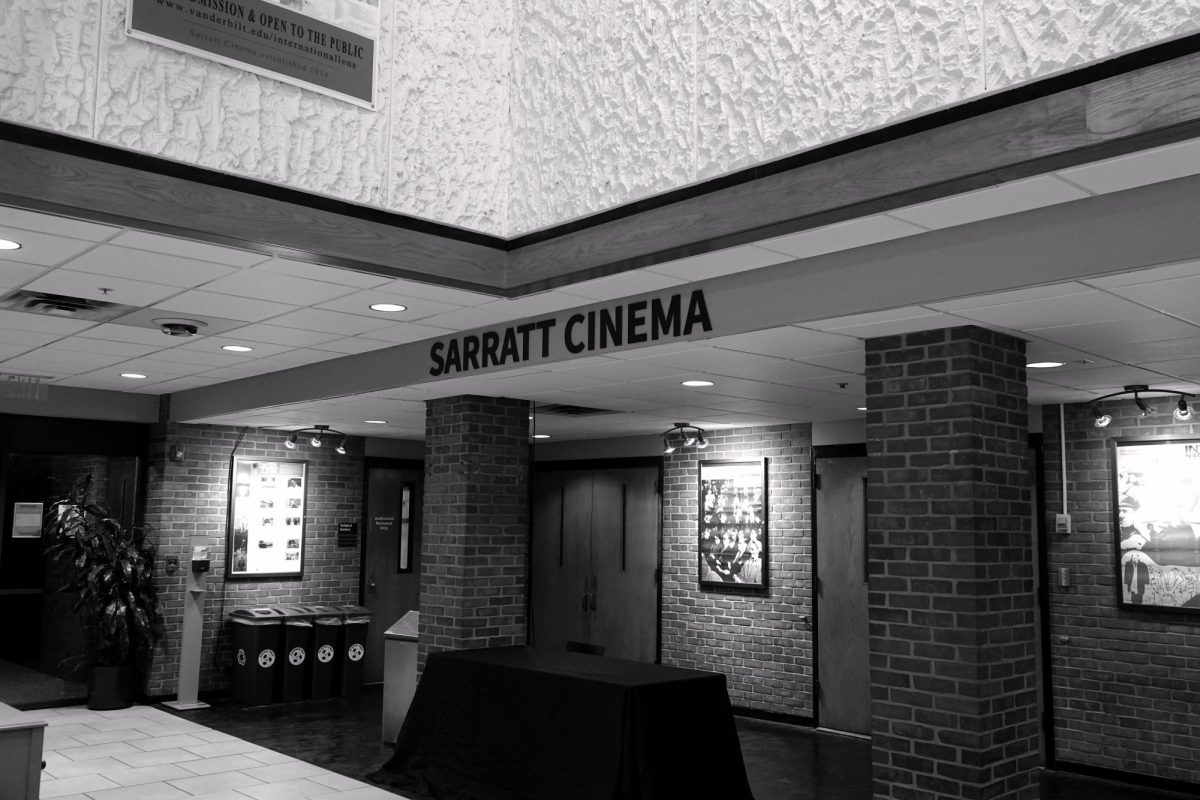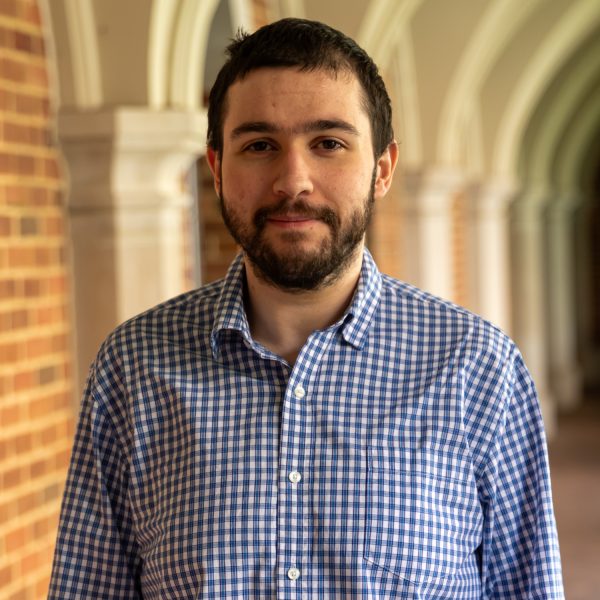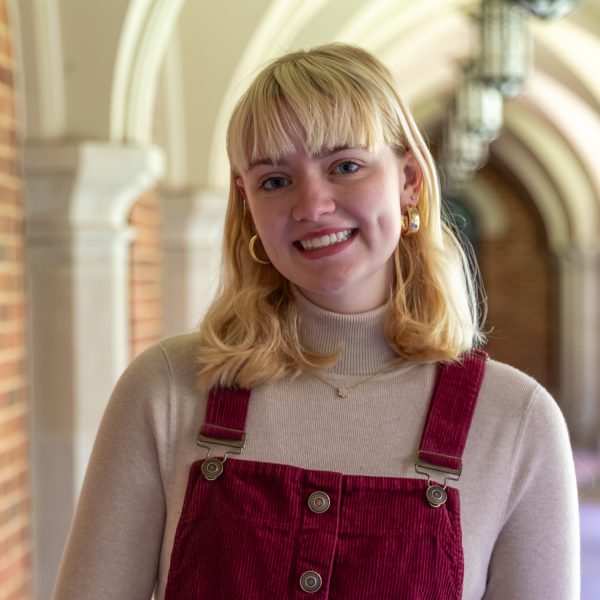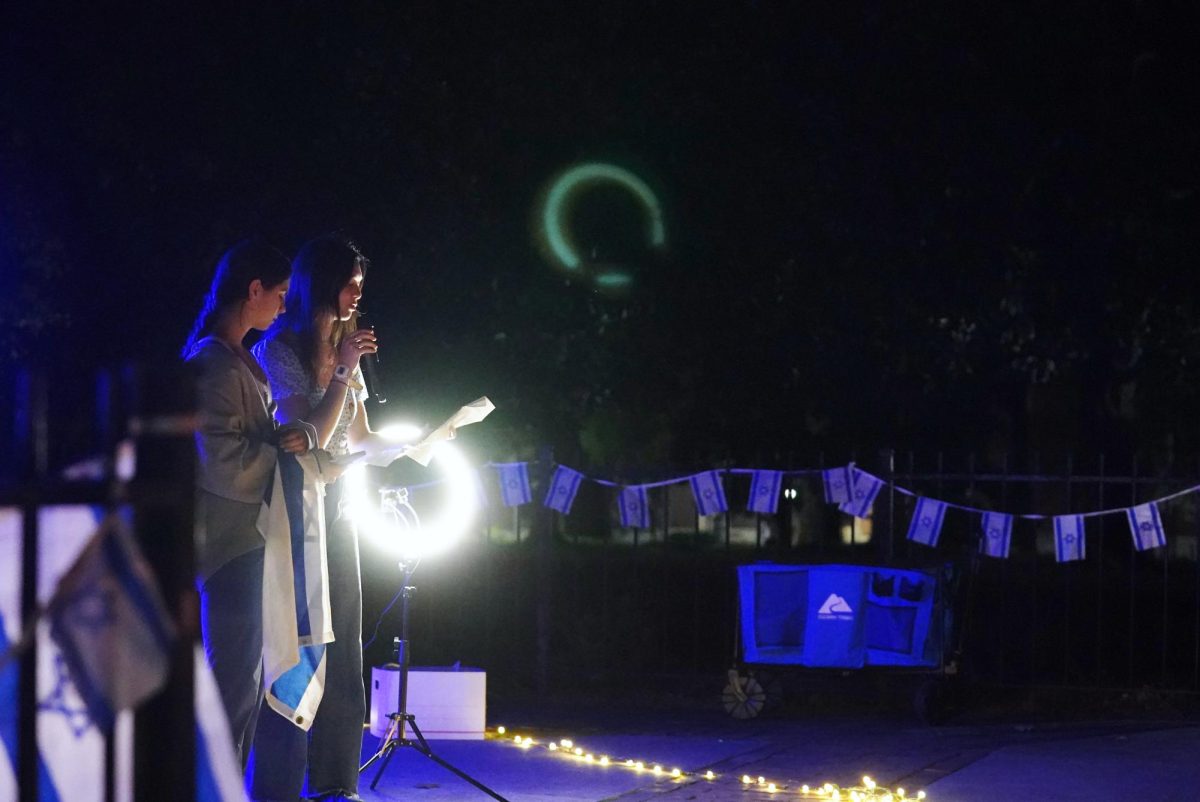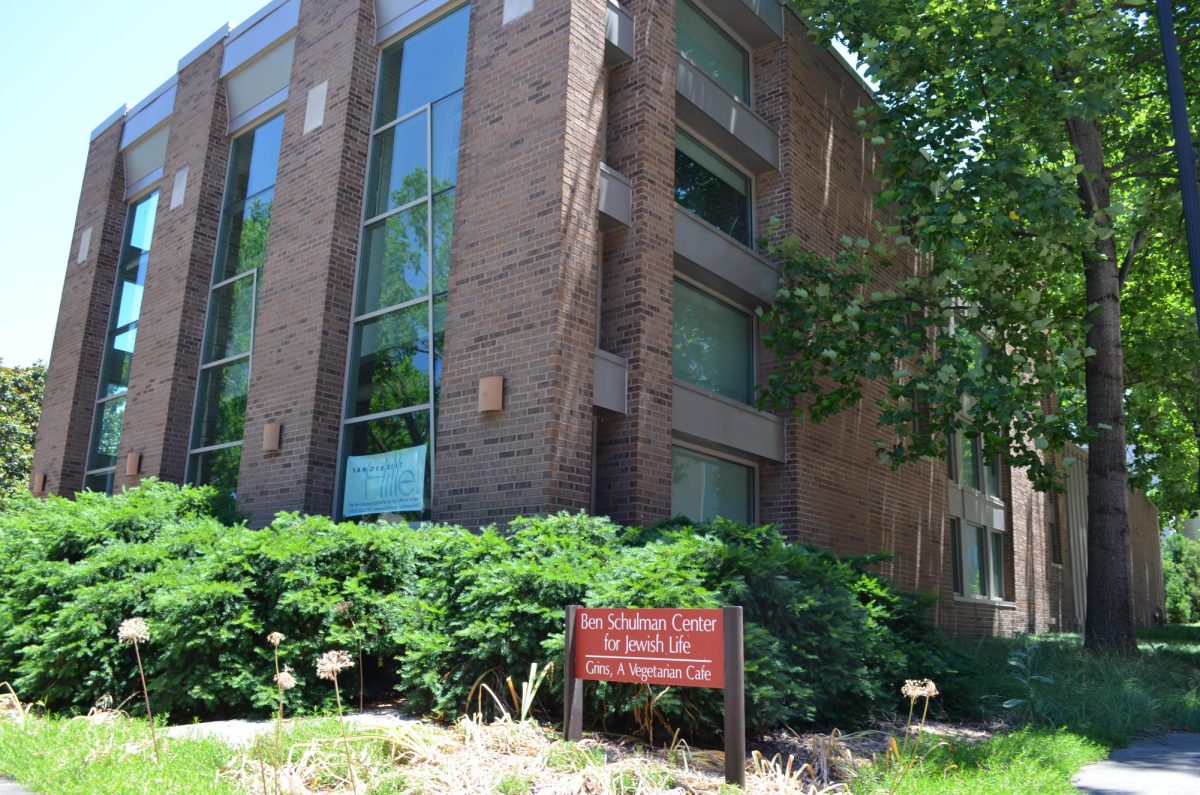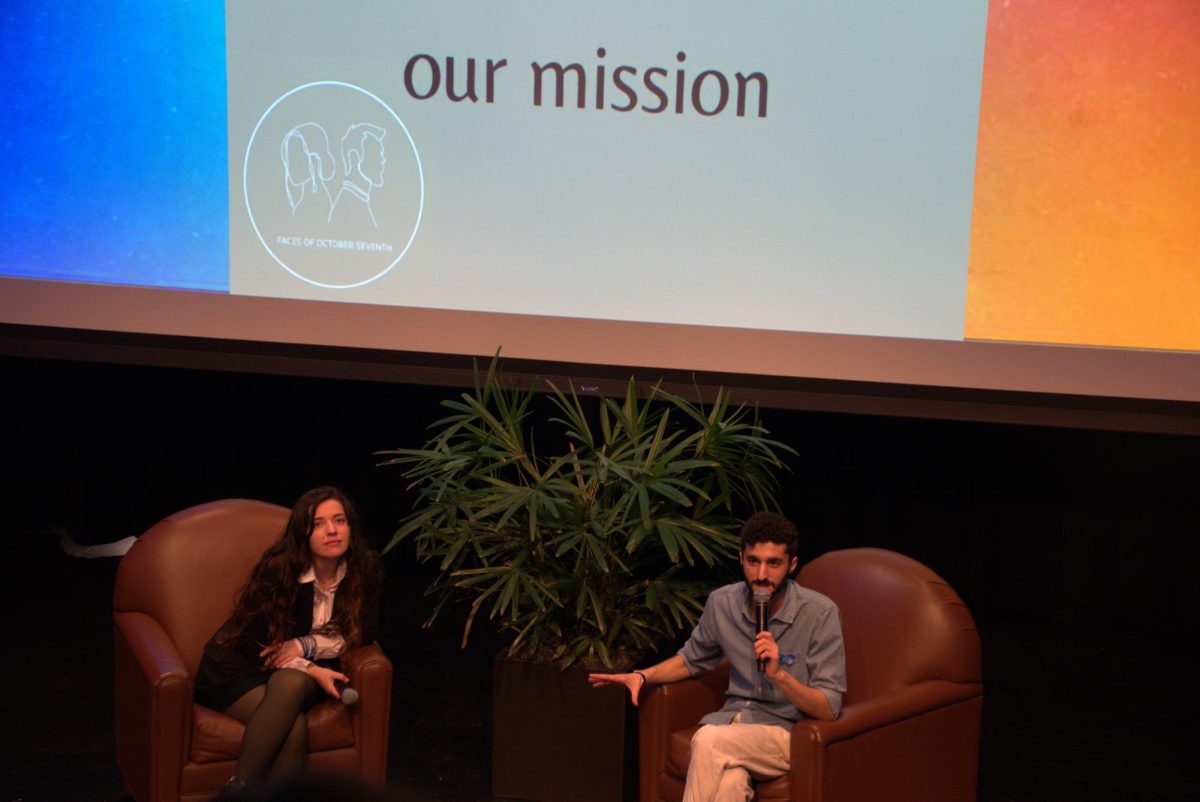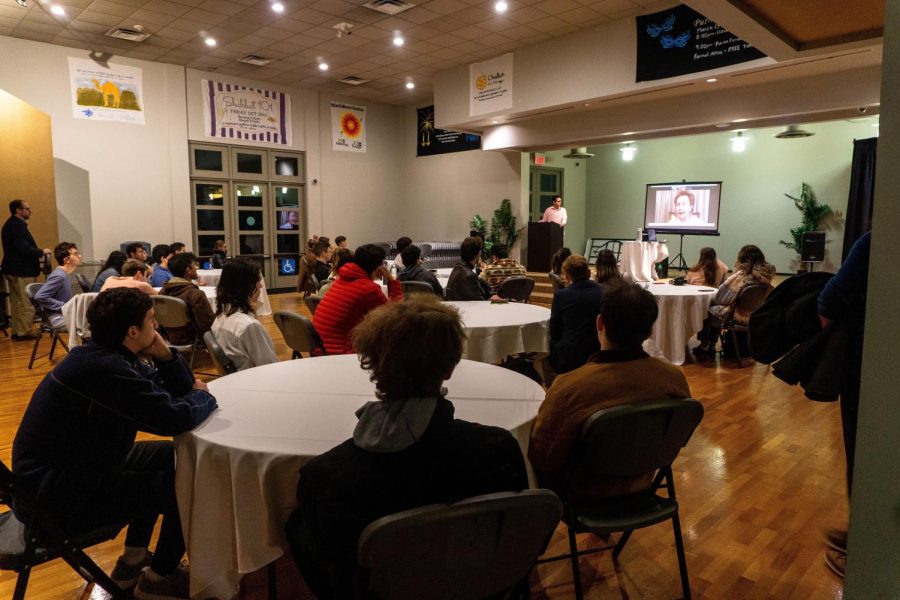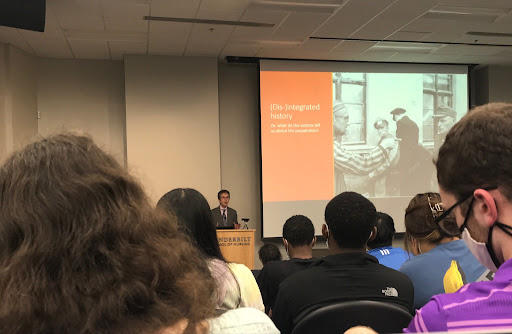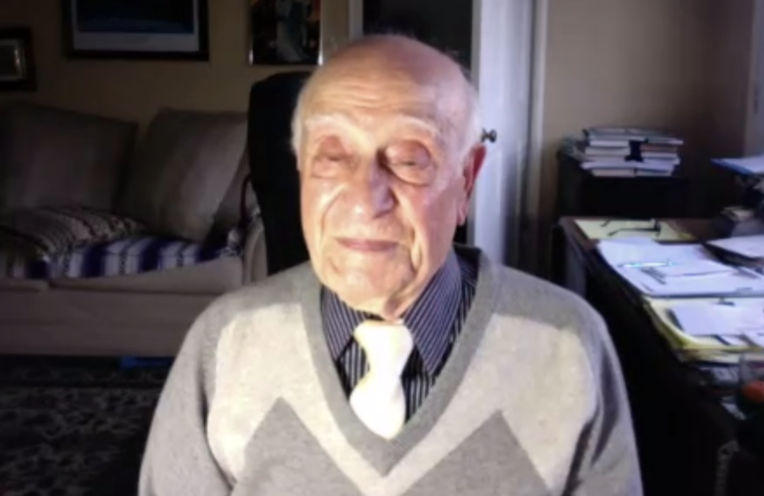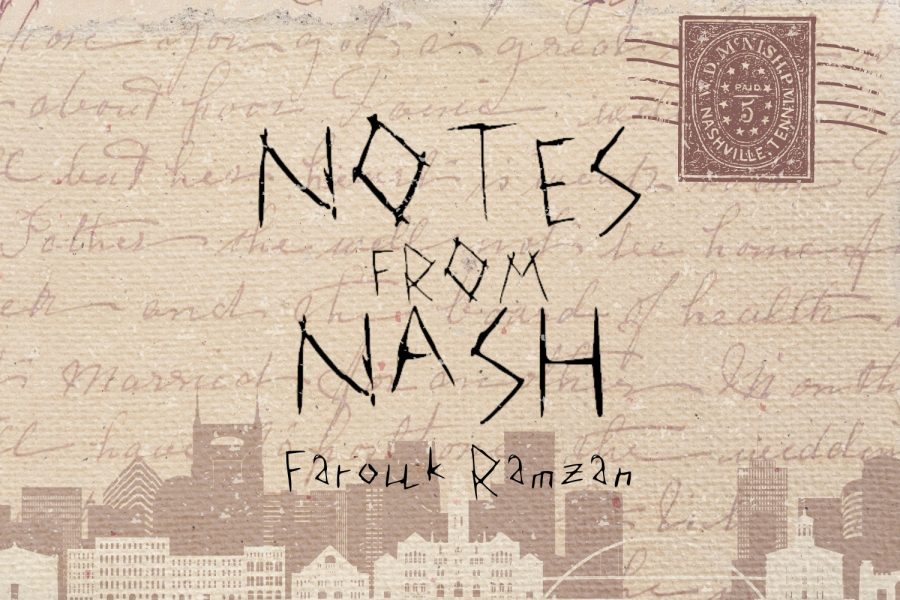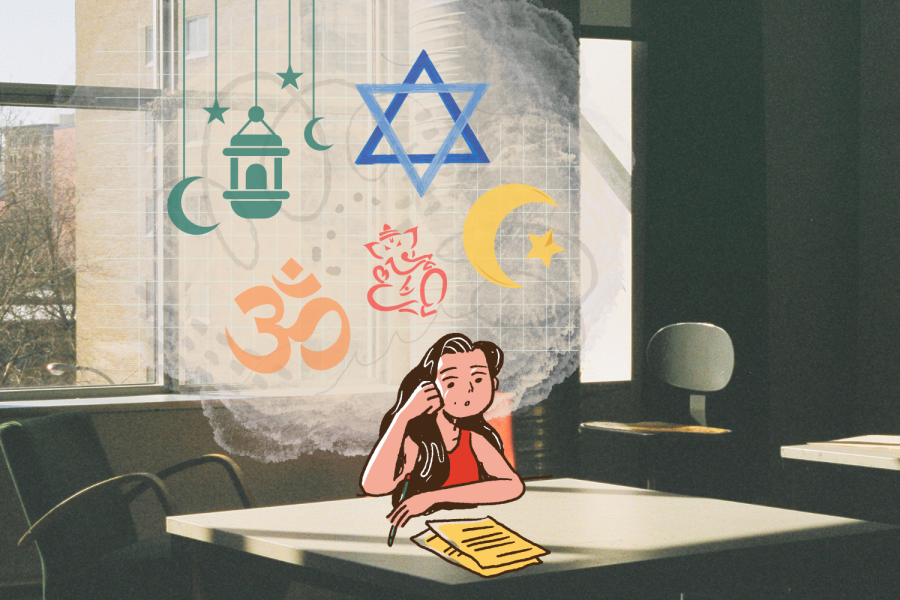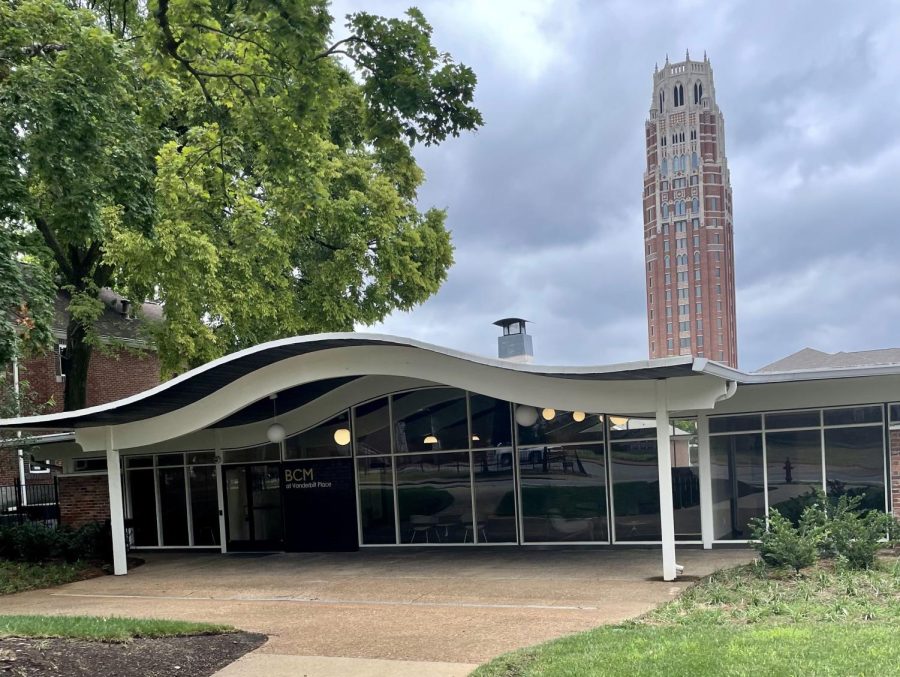CORRECTION: This article was corrected on Feb. 5 at 8:51 p.m. CST. Schonwetter was born in 1933, not 1934. It previously stated that Jewish students were forced to attend separate schools; rather, they were not allowed to attend school at all. The article was also updated to include an additional quote from Schonwetter.
The Center for Spiritual and Religious Life and Vanderbilt Hillel welcomed Holocaust survivor Mark Schonwetter to speak in Sarratt Cinema on Jan. 24. Part of the university’s ongoing Holocaust Lecture Series, Schonwetter spoke on his and his family’s experiences while in hiding during the Holocaust.
Schonwetter was born in southeastern Poland in 1933 and immigrated to the United States in 1961. He is a founder of the Mark Schonwetter Holocaust Education Foundation and has spoken at many schools, colleges and businesses. Schonwetter’s daughter and foundation co-founder, Isabelle Fiske, delivered introductory and closing speeches at the event.
“It is a privilege to be able to stand up here in front of you today,” Fiske said. “We came all the way from New Jersey, but I think we kind of brought the weather with us even though we handle it a little better than you guys.”
Fiske said that the talk was important because not many Holocaust survivors are still alive.
“Unfortunately the survivors are aging out and there are not many left. You can go around and tell the story of what they experienced during World War II, which we now call the Holocaust,” Fiske said. “It’s a privilege because you guys are going to be able to become his voice.”
Schonwetter began his talk by describing the events his family experienced following Germany’s invasion of Poland. He noted that his father was the head of their small town’s Jewish community.
“It didn’t take too much time for the Gestapo to come to our town and start asking the chief of the police all kinds of questions in relation to the Jewish people,” Schonwetter said.
Schonwetter explained that restrictions began to gradually increase for the Jewish population, including mandates for all Jews to wear the Star of David and the barring of Jewish children from schools.
“They came in and they told my father he had one day to find a room someplace and that they were taking his house and everything away from him. We didn’t have much of a choice, of course,” Schonwetter said.
Schonwetter then described how his mother took the children and hid with them in the house of a non-Jewish family who agreed to shelter them at the time. The family, without his father, spent time in a Jewish ghetto where food shortages were the norm. Schonwetter said he and his family eventually escaped with the help of the family who had sheltered them and spent the rest of the war hiding in the forest or moving between houses.
In early 1945, Schonwetter said he and his family were told by a group of Soviet soldiers that the war was over — that they could go home.
Schonwetter said his father was not as fortunate. One day, his mother came across the son-in-law of the family who had initially housed the Schonwetters, recognizing the man’s boots as her husband’s. Forced by the Germans to dig a mass grave, the man said he was told he could collect one item from those killed “as a reward.” He shared that, upon recognizing Schonwetter’s father, he took the shoes to honor his memory.
Schonwetter concluded his talk by emphasizing the importance of history education in promoting cross-cultural and religious understanding and respect.
“We are all human beings, and we should live with respect for one another and peace. Hatred will only bring on more hatred, and what will that bring? Just killing,” Schonwetter said. “It is better to live with love for one another.”
Sophomore Abby Rakowitz expressed appreciation for the opportunity to hear Schonwetter’s story, sharing that she heard about the event from history professor Michael Bess.
“He said that it would be interesting to hear this because we’re the last age group that has the privilege to listen to firsthand accounts,” Rakowitz said. “I was really privileged to get to hear him [Schonwetter] speak.”

